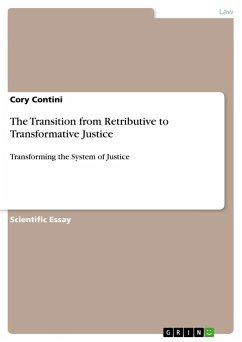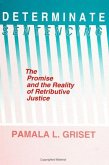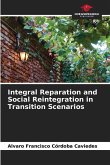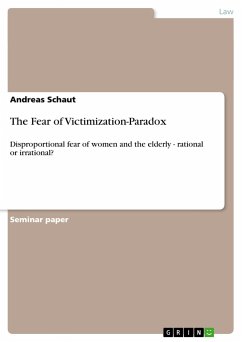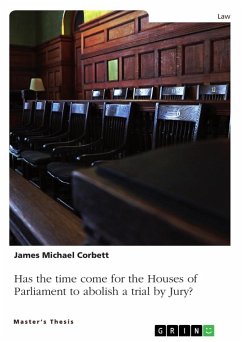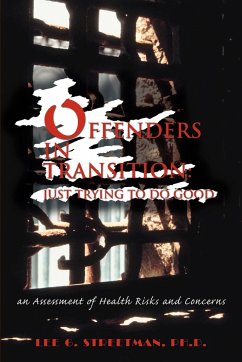Scientific Essay from the year 2009 in the subject Law - Criminal process, Criminology, Law Enforcement, grade: 86, Ottawa University, course: Penal Abolitionism, language: English, abstract: Crime has long been a stable term with a finite definition, but many modern reforms attack the foundation of retributive justice. Following two incidents of children killing children, this paper will examine various arguments made by Nils Christie (2000) and Louk Hulsman (1986) in regards to crime. This paper will describe and analyse the public and political responses to two notorious cases of the killing of children by children, one in England and one in Norway. Using the works of Christie (2000) and Hulsman (1986), I will present the ways in which the cases were discussed as symptomatic of wider social problems, and how differently England and Norway acted, ultimately portraying their respective juvenile criminal justice system. This paper will examine both the similarities and the differences in the reactions to the killings in England and Norway, arguing that while the similarities may be more obvious the differences may be more instructive. On the surface, both seem like similar cases but because of the different geographical locations, they were handled quite differently. This sets up the context of penological arguments about the emergence of a postmodern penality. To start, one must understand the basis of Christie's (2000) and Hulsman's (1986) theories respectively. Nils Christie (2000) argues that a nation's extent and level of punishment is a normative question. In criminology, the term normative defines the structures within culture which help regulate the proper function of society. These structures encourage and enforce valued social activity and discourage negative acts. Punishment is normative because crime control executives and decision-makers are both free and obliged to choose how far punishment will go. The argument Christie (2000) raises is that contemporary crime control values the prison-industrial complex (expansion, big business, and continued incarceration) because society fears any alternative.

